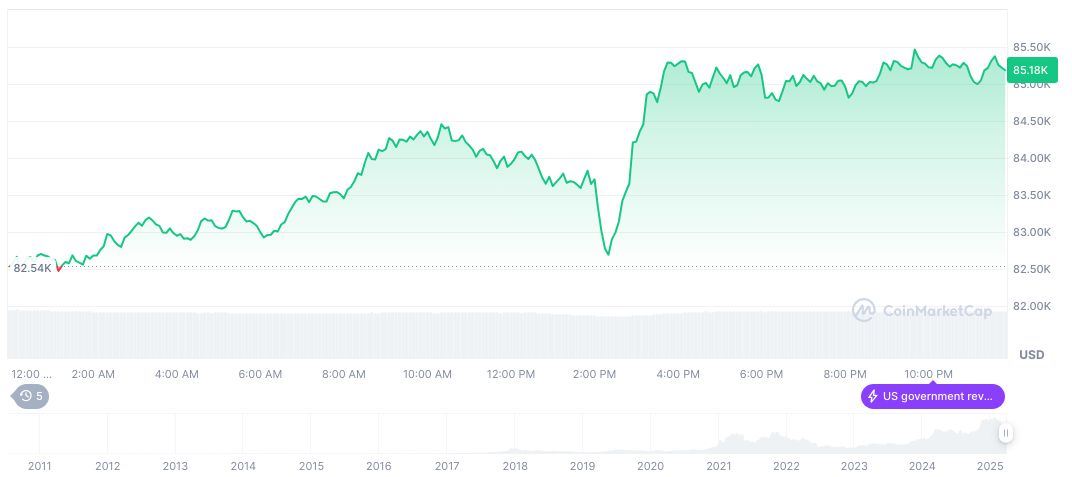







































Trump Announces 10% Tariff on All U.S. Imports
 TRUMP
TRUMP
 DJT
DJT
 READ
READ
 DON
DON
 TRUMP2024
TRUMP2024
- Trump announces 10% tariff on all U.S. imports, influencing trade.
- Tariff to protect U.S. industries and workers.
- Cryptocurrency markets react, Bitcoin decreases.
U.S. President Donald Trump announced the imposition of a comprehensive 10% tariff on all imported goods to the U.S.
This decision aims to reshape and balance international trade dynamics, affecting global markets and industries reliant on imports.
Trump's 10% Tariff: Global Markets and Industry Impact
President Trump’s announcement of a comprehensive 10% tariff on all U.S. imports has sent ripples across global markets. The policy is part of Trump's strategic efforts to protect American workers and bolster domestic industries, as stated in official remarks by the White House.
The tariff aims to stimulate U.S. manufacturing by reshoring industries and reducing trade deficits. Industries reliant on imports, such as technology and automotive, could see increased production costs and supply chain adjustments as a result.
Financial markets have reacted strongly to the announcement. Bitcoin's value dropped from $84,000 to $81,565, reflecting broader market panic over inflation and supply chain concerns. Experts warn that these tariffs could reduce risk appetite among investors and highlight significant reshoring efforts in U.S. manufacturing.
Bitcoin Drops to $81,565 Amid Tariff-Induced Turmoil
Did you know? Previous tariffs under President Trump’s first term led to significant reshoring efforts in the U.S. manufacturing sector, highlighting the strategy's potential impact on industry behaviors.
Bitcoin (BTC) currently trades at $85,655.71, with a market cap of $1.70 trillion as per CoinMarketCap. BTC's recent price changes include a 0.49% increase over the past 24 hours and a 15.51% decrease over the past 60 days. The cryptocurrency's trading volume surged by 45.16% in the last 24 hours, highlighting volatility amid market uncertainty.

According to insights from the Coincu research team, these economic measures are expected to further complicate global trade relations. If the tariffs result in sustained inflation, the demand for digital assets as a hedge may increase, altering investment strategies and market valuations in the long term.
Read original article on coincu.com
